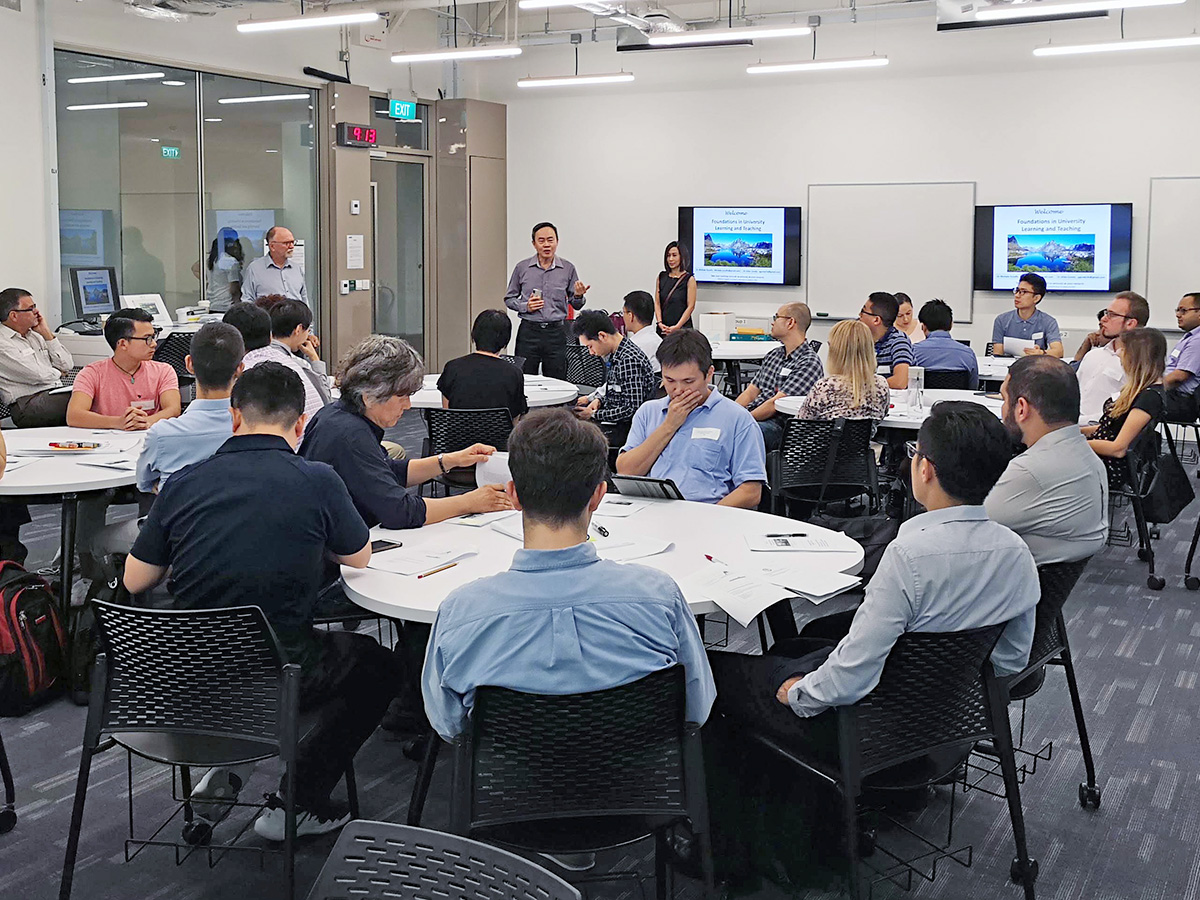Foundations of University Learning and Teaching
FULT aims to provide an environment within which new and junior faculty can develop your practical skills and understanding of course design, teaching, learning, assessments, and communication with students within the context of your own teaching. Through FULT, you will have opportunities to explore areas of pedagogy and research relevant to teaching in higher education. As a community of practice, we will learn, apply, and reflect on teaching strategies that are informed by evidence to promote student engagement and deep learning. Overall, we aim to develop a critical mindset crucial to the continued improvement of our teaching practice.
By the end of the programme, you should be able to:
- Design courses with explicit outcomes aligned to assessment and learning activities
- Use learning activities and assessment strategies to promote student learning
- Evaluate your own teaching to determine the impact of your teaching strategies


Programme
FULT is a year-long programme consisting of two phases, all to be completed within the first two years of employment. The first phase is a series of workshops that lay the foundation on teaching and learning at university. The second phase will provide an opportunity to apply theoretical knowledge in practice and receive feedback on your teaching. It will also initiate the process of compiling elements of your teaching portfolio in accordance with appraisal guidelines.
FULT is offered twice a year for all new faculty members.
Award
Upon the completion of FULT, you will be awarded a certificate of completion.
Alternative Pathway to FULT
You may also enrol in FULT as a 4AU course.
These 4 AUs can be stacked towards a Graduate Certificate in Teaching and Learning in Higher Education conferred by the National Institute of Education. Click here for more information.
Fees and funding support apply. NTU/NIE alumni may utilize their $1,600 alumni course credits. Click here for further details.
Regardless of which path you choose, the FULT programme presents the same level of quality and content.
/fult_chart_2024.jpg?sfvrsn=bc7d82cd_1)
| Course | Description | AU |
|---|---|---|
| MTD913A Teaching and Learning in Higher Education: Foundations | The Teaching and Learning in Higher Education course aims to provide a supportive environment for early career faculty, within which you can develop your practical skills and understanding of teaching in higher education. This is the first of a three-part series, in which we will situate our roles and responsibilities as academics within the current landscape of today's university. Specifically, we will analyse how our mindset will influence our approach to teaching and, consequently, impact student learning. By drawing on current literature and different learning perspectives, we will consider evidence-informed best practices in higher education, and reflect their applicability within our own context. | 1 |
| MTD913B Teaching and Learning in Higher Education: Course Design | In this second part of the Teaching and Learning in Higher Education course, we will explore a course design approach using the principle of Constructive Alignment and its implications for student learning. Using the SOLO Taxonomy, we will design assessments and learning activities aimed at encouraging higher-order thinking. As a learner, you will experience evidence-based approaches for teaching large and small classes, and reflect on how you may apply them in your own teaching. | 1 |
| MTD913C Teaching and Learning in Higher Education: Reflective Practice | In this third part of the Teaching and Learning in Higher Education course, we aim to provide opportunity for you to put theory into practice, considering what works for you in your teaching, for whom, and in what contexts. During this phase, you will learn to look closely at your own teaching using peer and student feedback. We will critically examine classroom instruction to identify skills and strategies that promote student engagement and deep learning. Through this reflective practice, you will develop an evaluative and reflective mindset about student learning that is essential to improving teaching. | 2 |
Please contact facultydevelopment@ntu.edu.sg for more information.

